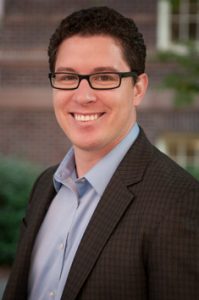Professor’s research shapes block of recent Arkansas abortion bill
Department of Economics professor Jason Lindo’s research on the consequences of abortion-clinic closures recently effected the block on a proposed abortion bill in Arkansas.

By Alix Poth ’18
Texas A&M University Department of Economics professor Jason Lindo’s research shaped the recent block on a proposed abortion bill in Arkansas.
Arkansas Judge Kristine G. Baker blocked laws on July 24 that increase restrictions on abortions minutes before the laws were to go in effect. Following a hearing that included expert testimony from Lindo explaining the effects of abortion-clinic closures, Baker delayed the laws being enforced for up to two weeks.
The bill proposed restrictions including banning abortions after 18 weeks of pregnancy, preventing abortions due to a Down syndrome diagnosis, and a requirement for abortion providers to be OB-GYN certified.
A specialist in health economics and estimating causal effects, Lindo focused on the OB-GYN requirement going into effect and predicted the proposed bill would decrease the annual number of surgical abortions from 2,212 to 252 at the most. The number of physicians available for abortion would severely decrease due to the OB-GYN certification requirement, causing the drop in annual surgical abortions.
“I was primarily asked to evaluate the degree to which Arkansas providers would or would not have the capacity to meet the historical demand for abortion in Arkansas if the OBGYN requirement were to go into effect,” Lindo said. “I agreed to do this analysis because I think it’s important that academics provide rigorous bias-free information to policy makers when they have the expertise to do so.”
In a recent New York Times article, Lindo’s research was also used to predict the nationwide effects of overturning Roe v. Wade. Lindo and fellow researchers looked at how abortion clinic closures, and resulting increased distances to abortion providers, affected abortion rates.
“We document the effects of abortion-clinic closures on clinic access, abortions, and births,” the research reported. “Increases in distance have significant effects for women initially living within 200 miles of a clinic. The largest effect is for those nearest to clinics for whom a 25-mile increase reduces abortion 10 percent.”
Critics of the bill, such as Planned Parenthood and American Civil Liberties Union, filed the initial lawsuit and welcomed Baker’s decision.
“We’re relieved that these bans and restrictions have been blocked from taking effect and we’re determined to see them struck down for good,” said Holly Dickson, legal director and interim executive director of the ACLU of Arkansas.
Whereas proponents of the proposed restrictions, such as Arkansas Attorney General Leslie Rutledge, hope to see the bill passed soon.
“The last minute attempt by the ACLU to block Arkansas’ laws is frustrating, but not unforeseen,” Rutledge said in a statement. “The action was only the initial step, and I anticipate further action in the near future in our defense of these laws that protect the life of mothers and their unborn children.”
The two week temporary block will end on Aug. 7.
“As for what will happen next, Judge Baker will decide whether or not to issue a preliminary injunction, which would continue to block the laws from being enforced until a future hearing,” Lindo said.
Read more about Lindo’s research here.

